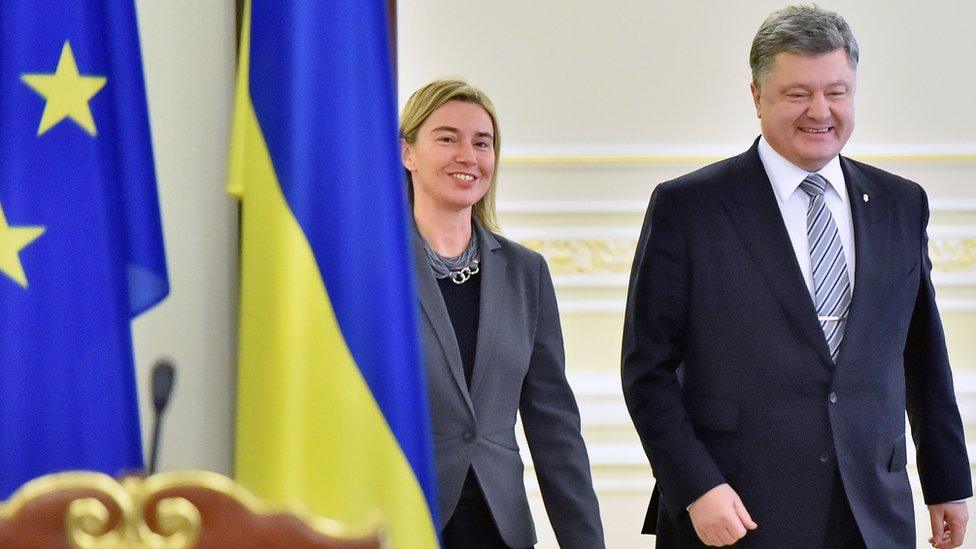Russia hits Ukraine with trade sanctions over EU deal
- Published
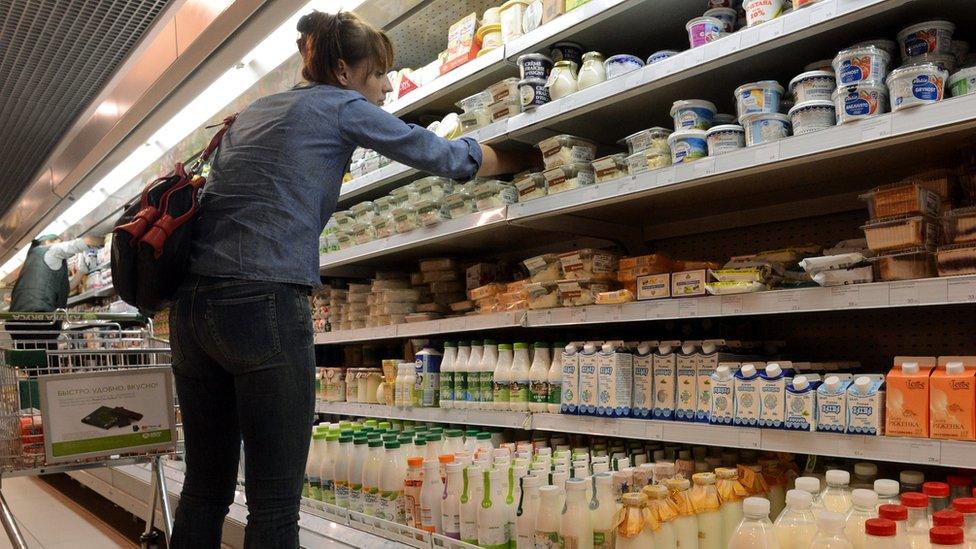
Russia is banning imported Ukrainian food from 1 January - and most Western food is already banned
Russia is tightening trade sanctions on Ukraine in retaliation for Kiev's sanctions and its EU free trade deal.
Russia will apply new tariffs to Ukrainian exports from 1 January, when the free trade deal takes effect.
Earlier Russia announced a ban on imported Ukrainian food - also from 1 January - because Ukraine blacklisted many Russian banks, defence firms and airlines, in line with EU sanctions.
Russia's annexation of Crimea in 2014 triggered wide-ranging EU sanctions.
The EU has decided to extend the sanctions for another six months - until mid-2016 - because the Minsk peace deal, aimed at settling the eastern Ukraine conflict, will not be fulfilled as was envisaged by the end of this month.
The sanctions were ratcheted up after pro-Russian separatists seized a large swathe of eastern Ukraine and declared independence from Kiev in 2014. Russia has sent heavy weapons and troops to help them, Western leaders say - something that Moscow denies.

The US and some other Western countries also imposed sanctions on Russia, which retaliated by banning most imported Western food and drink.
Separately, the Russian government said on Monday it would take legal action over Ukraine's failure to repay a $3bn (£2bn) debt.
Ukrainian Prime Minister Arseniy Yatseniuk said Russia had refused to restructure the debt, unlike other foreign bondholders who had done so.
He also called the debt - incurred in December 2013 - a "political bribe" from Moscow to former President Viktor Yanukovych, who was facing mass street protests at the time. Mr Yanukovych fled to Russia in February 2014.
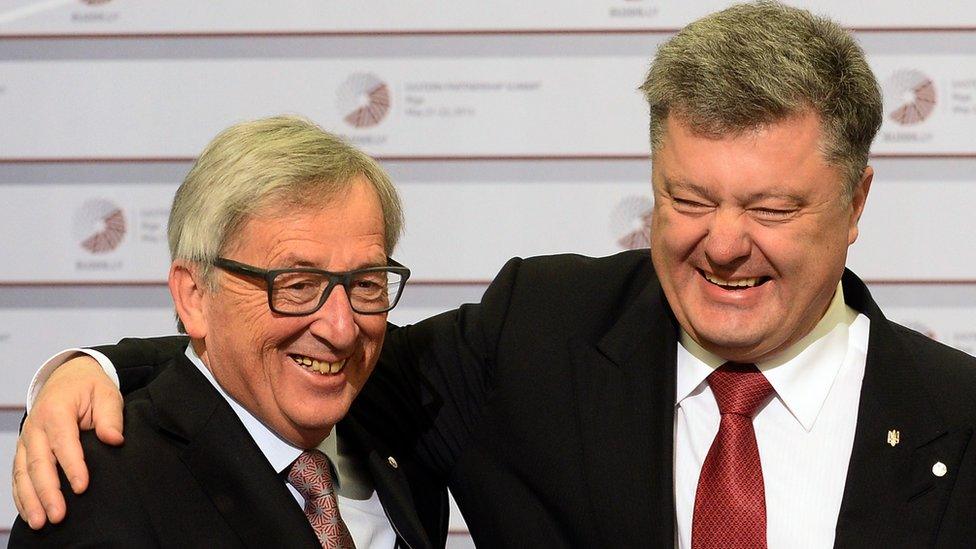
EU Commission President Jean-Claude Juncker (L) has given President Poroshenko an EU blueprint for reform
Closer EU ties
Russia argues that the EU-Ukraine Deep and Comprehensive Free Trade Area (DCFTA) , externalthreatens to turn Ukraine into a backdoor for cheap EU exports to Russia. So it is scrapping its preferential terms for Ukrainian exporters.
Russia says it has tried unsuccessfully to reach agreement on the issue "peacefully and in a mutually beneficial way".
"Ukraine and the EU are not prepared to sign a legally binding accord that would take account of Russia's interests," Russian Prime Minister Dmitry Medvedev said.
Later the European Commission blamed Russia, external for the failure of talks on the DCFTA. A new legally binding accord would "reopen" the DCFTA, the Commission said, but "the DCFTA cannot be amended - neither directly nor indirectly".
In September Ukraine's President Petro Poroshenko introduced sanctions against 388 Russian individuals and 105 firms and other organisations.
The proportion of Ukrainian exports going to the EU jumped from below 25% in 2012 to almost 35% in the first seven months of this year, the Financial Times reports, external, in contrast with shrinking trade with Russia.
Ukraine's imports of Russian natural gas - for years a thorny issue in their relations - have also declined to a bare minimum. Ukraine's gas dependency on Russia was reduced through energy efficiency measures and diversifying sources of supply.
- Published14 December 2015
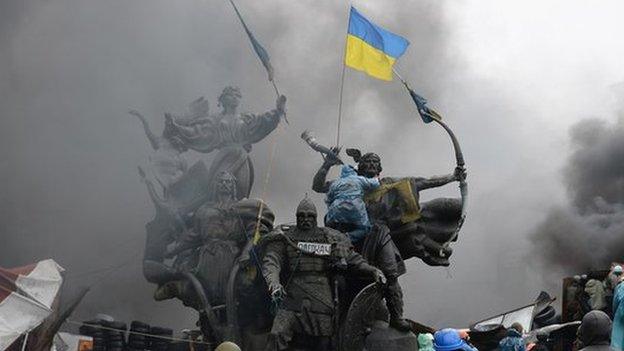
- Published18 December 2015
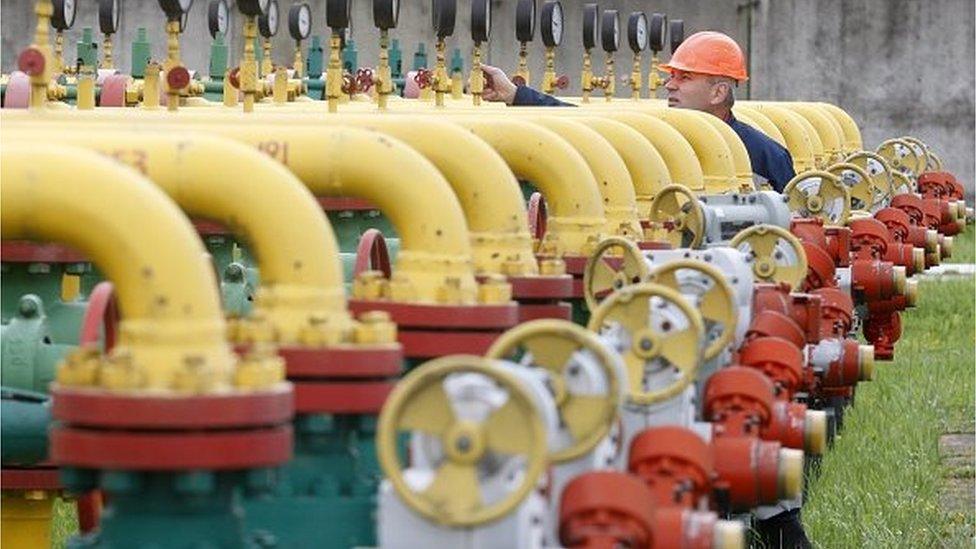
- Published17 November 2015
